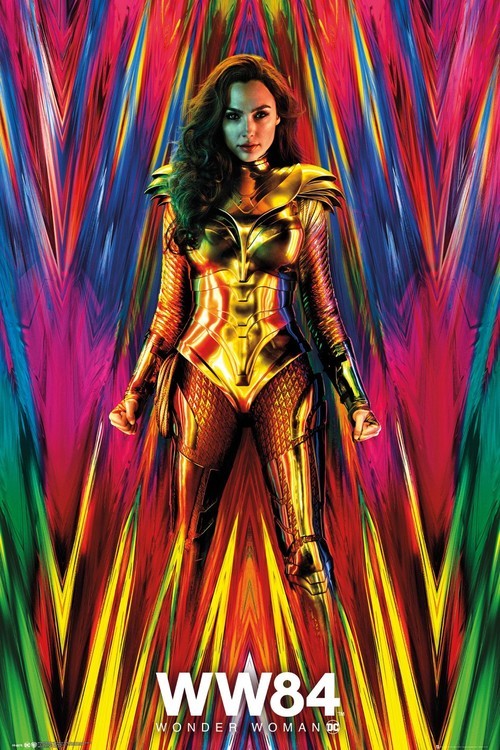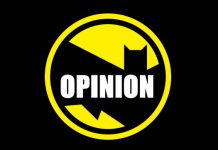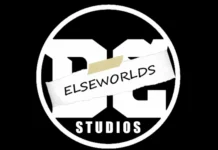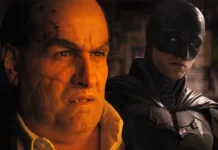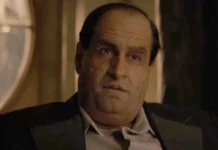WONDER WOMAN 1984 Is An Objectively Bad Movie by Jeremy Thomas
 Movies are like wine or food: What you like is what you like.
Movies are like wine or food: What you like is what you like.
You don’t have to justify that to anyone and don’t let anybody tell you you’re wrong. So I’m not interested in ranting hysterically like an online fanboy shouting toxic insults about a movie that didn’t live up to the unreasonable expectations of my imagined nostalgia or bruised my tender “true fan’s” ego. If you like WONDER WOMAN 1984, I am happy for you….but it’s still an objectively bad movie.
It’s not bad because it isn’t true to Wonder Woman as a character. In fact, it rings pretty true to the way a Wonder Woman comic might have unfolded in the 80s. Just not a very good one.
It’s not that it’s a bad Wonder Woman movie or bad superhero or comic book movie. It’s just a bad movie. Poorly executed filmmaking from script to screen.
I want to give Patty Jenkins the benefit of the doubt as an artist for what she was trying to do. It seems pretty obvious she wanted to create the tone and aesthetic of a movie that might have actually been made in 1984. I even get why she would want to populate this installment with the bright colors, campy dialogue, and lighthearted moments that have thus far been totally missing from the “Snyderverse.” The problem is none of it works.
None of it.
Ultimately, the effort only served to remind me of the mistakes that were made with superhero movies in the 80s when studios weren’t taking the heroes or the source material seriously and directors weren’t doing the work to effectively translate the themes and characters we love to the more “real” world of live-action films. It also created such a dramatic departure in tone and style it feels untethered from the universe in which it’s supposed to exist.
There isn’t even any story-driven reason for the film to be set in the 1980s. The fact it was 1984 wasn’t relevant to anything except bad jokes way overplayed. It was the height of the Cold War, and the greatest geopolitical threat of the age was reduced to the worst “Reagan” portrayal I’ve ever seen wishing for “more nukes.”
Beyond the artistic misfires, the script is so full of holes, poorly developed characters, and ridiculous, lazy setups that no amount of suspension of disbelief can carry you through the two-and-a-half-hour runtime without giving in to a series of frustrated sighs and exasperated groans.
Steve Trevor is brought back to life inside the body of another man, for no reason at all, and the fact he’s literally stealing another man’s life is never referenced. That seems odd for a movie about unintended consequences of misguided wishes. He’s also able to jump in and effortlessly pilot a jet fighter that is for some reason sitting on a runway at the Smithsonian loaded with enough fuel to fly to Cairo and back.
I’d watch Gal Gadot watch paint dry, but the dialogue she’s given in this film is brutally bad and Chris Pine is mostly robbed of the easy gravitas that makes Chris Pine “Chris Pine.” There’s a two-minute costume change montage Gadot and Pine both do their best with but is painfully unnecessary, and we get another montage of Trevor walking goofily agog around the Air and Space Museum.
Then there are the villains.
Wiig is outstanding. She steals every scene she’s in, which is impressive considering she’s been cast as the most beautiful woman in the world. Her Cheetah is the most complete character arc in the film.
Pascal’s Max Lord, on the other hand, is a complete mess. How does he know about this wish-granting artifact? What the hell is he trying to accomplish? Why is his son Asian? Why didn’t he just wish for success? “More” isn’t a very good character motivation, and somewhere even Nick Cage is screaming “take it down a notch, Pedro!”
The special effects are awful. It looks like Gadot is running in place, and they just slide her across the screen. There are passive-aggressive arguments on Downton Abbey with higher stakes and tension than the action set pieces. Speaking of, we get one real action scene in a 150-minute superhero movie?
When the young Diana takes a shortcut to regain her lead in the race that opens the movie, Antiope tells her “Greatness is not what you think.” Nowhere is that theme more true than in the gap between the potential for this film and the end product. Buried somewhere in WONDER WOMAN 1984 is a great comic book relevant story about wanting things we shouldn’t have or aren’t ready for and the perils of taking shortcuts to perceived greatness. What we got instead was a messy story about greed and the folly in magical wishes that literally every other genie-in-the-lamp movie has done better. – Jeremy Thomas
Why I Like WONDER WOMAN 1984 by Trey Jackson
I didn’t think that would be too controversial a thing to say, but here we are.
I don’t think it was perfect (spoilers to follow). If the serious tone of the first Wonder Woman was one of your favorite aspects of that movie, then it’s natural for you to be a little let down by this one. If you’d rather leave magical MacGuffins to the Marvel universe, then you’re understandably disappointed that one plays such a prominent role here. Even if those things don’t bother you, it’s not unreasonable to notice things like a World War I pilot being able to fly a fully-fueled jet out of the Smithsonian, along with some extended scenes that exist purely for the sake of spectacle. There are flaws, and we should be allowed to mention them in an honest appraisal of this movie.
But — stay with me here — I think the heart of the movie is so good that those things don’t bother me. In fact, I think some of them aren’t even problems, but evidence of a particular vision and take on the character that works really well. Here’s what I mean: this movie shares a powerful message in an earnest way that really resonated with me. Allow me to explain why.
We Are the Problem
One of my favorite authors, when asked “What is wrong with the world?” at the turn of the 20th century, gave the following reply: “Dear Sir. I am. Yours, G. K. Chesterton.”
I was thinking about that walking out of WW84. I was thinking about it because I saw a movie that didn’t have a malevolent villain or a completely pure hero. I saw a movie that presented all its main characters as complex human beings, with the capacity for great good and great evil. Characters that must choose their paths, characters that struggle between the easy choice and the right choice.
What Chesterton meant in the quote above is that we are all tempted to think that the problems in this world are due to powerful external forces, or enemies that have to be defeated. The fact is that most of these problems are our fault (as Ares reminds us in the first WW movie). We don’t get to blame people that we can easily dismiss as evil, because we make choices between right and easy every day, and we all know that we don’t always choose right. We, when given the chance, make significant impacts on the world around us, good and bad. You might not think so, but consider how often you make selfish choices. Or recall the times you lashed out at someone defensively rather than try to come to an understanding. Even when you think you’re right to do so, you can’t know how far the ripples of a choice like that will travel. WW84 made this point as clearly as I’ve ever seen it made. How did it do that? It showed the three main characters making choices (and wishes) that hurt themselves and others. These choices, if we’re being honest, are choices we would have made too. Diana wants to be reunited with Steve because they were in love, and he showed her the goodness in humanity that she wants to protect. Barbara wants to be noticed and appreciated and not tp have to rely on others for her own safety. Max Lord wants to believe that he is worth something as a person, to anchor his self-esteem in a tangible way.
None of them want to hurt anyone just for the sake of hurting them. Even the villains weren’t at their core motivated by anger or hate. Given their circumstances, what they wanted is understandable. But this is where the problems of this world often come from. Our wishes, our desires, often come from the belief that our problems are external, not within us. We make mistakes, even understandable ones, and the consequences come all the same. And in this movie, the context amplifies those consequences in a powerful way. This leads me to my next point…
Why 1984?
I wasn’t around in 1984, and though I was born in the 80s, I was way too young to get an impression of them. So if you disliked the retro setting because it didn’t feel authentic, I can’t take issue with that at all. But what I noticed is that the context for this movie isn’t really the historical year itself. It’s the age of going after anything you want, and not concerning yourself with the consequences. The 80s represent materialism, where shiny new stuff was available, and wealth could be shown off more than ever before. What better showcase for a story about the importance of doing things the right way rather than the easy way? Here we have people seeing new televisions in every direction, and everyone dressing to be noticed. Greed and envy arise when we have other people to compare ourselves with. When everyone’s either looking through screens at others or wanting to be seen, greed and envy don’t just arise, they thrive. If Max Lord’s use of the wishing stone was a spark, the greed and materialism of the 80s was acres of dry timber.
But why 1984 specifically? If you’re going to remind the audience of one of the most famous dystopian novels ever written, you should probably have a reason. And I think Jenkins and her creative team did. Orwell’s 1984 featured an oppressive authoritarian government using telescreens in every home to communicate with and spy on its citizens. People lived their lives through screens, manipulated by what they were allowed to see, and disconnected from each other. And what do we see at the end of WW84? Maxwell Lord using screens to give people what they wanted in exchange for whatever he decided to take from them.
This is where I think the main theme of the movie really comes through. Remember, truth had no power in the dystopia Orwell created, the power of Big Brother had (mostly) overcome it. Max Lord had a similar aversion to facing reality. He outran truth the entire movie and almost succeeded in bringing the world with him, only to have Diana turn everyone around and show them what they were doing. And what is her power based on? What does the lasso reveal? Truth. Truth is a stubborn thing. Even in Orwell’s book truth always had to be fought and repressed, and Big Brother could never let up. Here, truth is the only way to stop the destruction that lies create. At the height of the chaos at the end, the only way people were able to look past their wishes and see what they were doing was to see the truth, the real consequences of their actions, revealed by Diana’s lasso. Everyone wants what they want because they lie to themselves about what’s missing in their lives. Everyone thinks they know what they want until they see the truth about getting it. Everyone thinks they aren’t the problem because they don’t see things clearly, and don’t want to when given the chance. But the truth remains, whether we want to face it or not. Diana faces it, and helps the rest of the world face it too.
(Oh, and don’t forget Barbara’s homeless friend Leon reading “Waiting for Godot,” a play about two homeless men waiting for their friend Godot to come along and solve their problems. Read into that what you will…)
Some Stray Thoughts
I’ve seen people take issue with Steve Trevor’s return and how it went down. So why did he come back? I’ve been wondering about that, and feel free to tell me what you think. I’m not sure that it was actually him. Not that he wasn’t there at all, but maybe not as completely as it might seem. I think Diana wished for him to return, but what she got was a personification of her memory of him, along with her hesitance to move on from him. I mean, she’s wishing on a magic stone, so why wouldn’t his actual body re-materialize? Because when she was wishing, she wasn’t thinking about him, she was thinking about her experience with him and wanting that back. Why would Steve Trevor wake up in a strange apartment and care anything at all about cleaning it up? Because maybe the replacement wasn’t as complete or instantaneous as we might think. Why did he still look like a “handsome man” to everyone else but look like Steve to her? Because, for almost seventy years, she rejected every new potential love interest in favor of a ghost. All she wanted was to believe he was back, and it didn’t matter whether it was actually true. And why did she lose her powers as a result? This is where I was reminded of Superman II and Spider-Man 2: what she really wants is to live a normal life with the person she loves. But the truth is a stubborn thing, and the truth is that Steve died to save the world in the first movie. He can’t come back, and she has to accept that. Now, what does it say about her that she would accept him walking around in someone else’s body, someone that probably wouldn’t have agreed to that? It says that she’s not a fully-formed completely virtuous hero yet. The possibility of reconnecting with him was a powerful temptation for her. But even then, her memory of him was one that included his insistence that she do the right thing and let him go because he was already gone. Meaning that even in getting her wish, she never stopped wanting to do the right thing, and finally did when she faced the truth head-on.
Another thing: notice how often in this movie (and in the first one as well) we see heroic acts as defensive, turning aggression against the aggressor, and redirecting violence against itself. That’s not by accident. This movie picks up on the idea that heroism isn’t always confrontational and assertive. It can also be protective and loving. Remember how she defeats Max Lord? Not with a fistfight, or throwing lightning bolts, but by using him to show everyone the truth of their actions. It’s awesome that our most famous female hero can remind us that heroism can take that form.
Speaking of female heroes, my wife actually had some mixed feelings about this movie. Since she’s awesome and really insightful, you should read them. Here’s what she had to say:
“In my opinion, the very first part was the best. It wasn’t as epic as the first WW movie. I thought I would like the 80s theme but I didn’t. I felt sorry for both villains and even WW herself. It made me sad about how self-centered humanity is. However, the movie had a redeeming ending which I really liked. I walked away feeling sad and down. But after talking about it, I’m impressed at how the director and actors were able to make me feel those emotions. Just because you want something doesn’t mean it’s good for you or others. What you want may hurt those around you.”
I agree with her, WW84 does show how self-centered we can be, and it gets pretty uncomfortable in that way. But that’s why I liked it. I think this movie gets at a concept that we need to appreciate, especially these days. Lies will always lead to destruction, and the truth is the only remedy. Taking the easy path over the right one is a form of lying to yourself, and it will never end well. These days we’re tempted to think that if we vote the right way, boycott the right thing, or get mad online for the right cause that all our problems will be solved. Perhaps we haven’t accepted the truth as much as we need to.
One last thing — while walking out of the theater, another couple asked us, “Did you like that?” We said that overall we did, but the other couple followed up by saying “We read online that it was terrible, so we thought we were going to hate it. But we didn’t, so that was a nice surprise.” I get that this wasn’t a perfect movie, but let’s move past the mindset that says a movie must be either the best ever or utter trash. It was fun, it had a good message, and I enjoyed the experience of watching it. And I’m looking forward to more of Diana’s story in the future. Thanks for reading! – Trey Jackson


